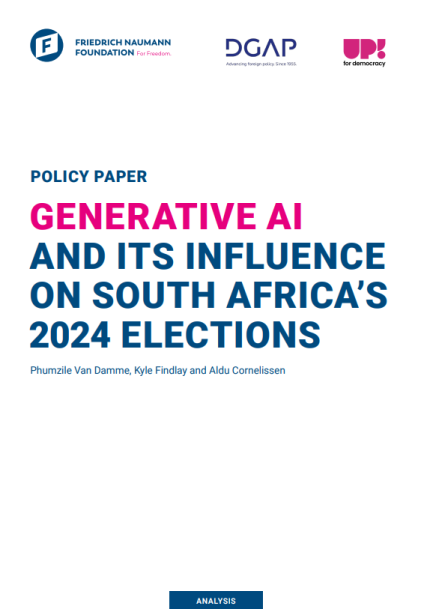Findings show a limited presence of AI-driven disinformation, with most misinformation originating from traditional sources rather than AI-powered platforms. Public trust in media remained relatively resilient, and there was no notable decline linked to GenAI-generated content, aside from isolated cases involving deepfake images and impersonations. These insights challenge assumptions that AI would significantly disrupt the election, instead revealing the robustness of South Africa’s existing media and social structures. This paper concludes with targeted policy recommendations aimed at strengthening South Africa’s electoral resilience, helping to harness GenAI’s benefits while addressing potential risks in the lead-up to the 2026 election.
Read the full Policy Paper here.
This publication is part of the AI/Democracy Initiative, a collaborative effort by the Friedrich Naumann Foundation and the German Council on Foreign Relations to explore the impact of artificial intelligence on democratic processes and electoral integrity. Visit the project website here .




